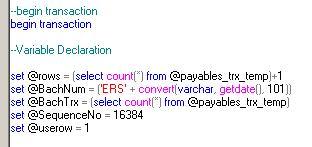C++ does enough as it is
by Alex Papadimoulis
in Feature Articles
on 2004-09-27
C/C++, although quite a powerful platform, doesn’t have much built-in functionality. Array bounds? Nope, it's not my job. Buffer overruns? Hey, I'm just writing what data you tell me to. Garbage collection? Seriously, do I look like your mother?
Still not content with this limited set of functionality, David Shay's colleague boycotted the String.compareTo() method and implemented his own. Of course, it doesn't actually work, but that's not the point ... C++ does enough as it is ... why should it have to compare strings to?

 Aug 04
Aug 04
